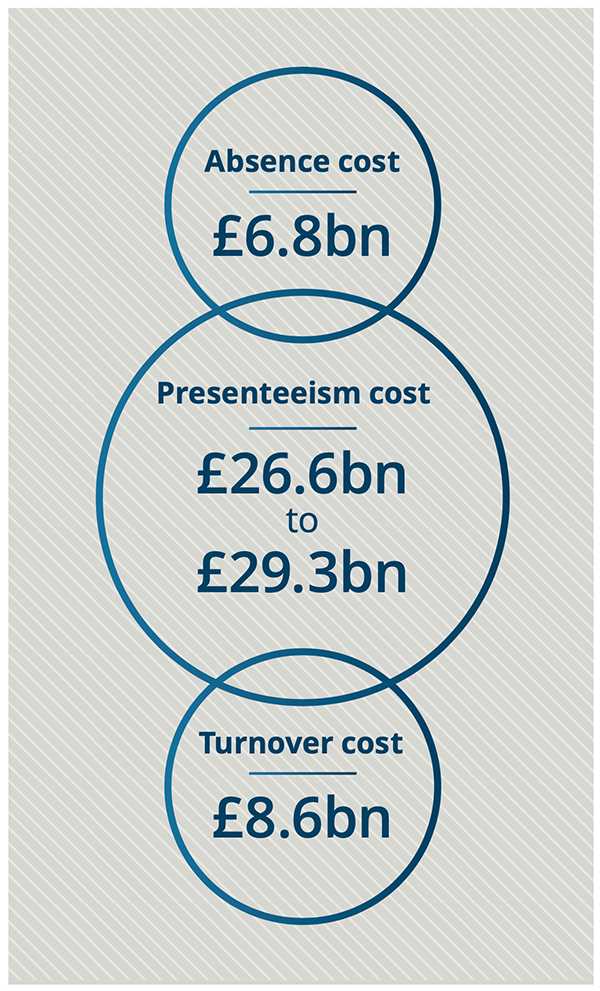
Recent large-scale reports have highlighted the significant cost of poor mental health to UK businesses and the economy as a whole, with staggering statistics. Below, we present some key findings from the 2021 Deloitte report on the issue.
Poor mental health in the workplace costs UK businesses up to £45 billion. These costs stem from absenteeism (employees’ intentional or habitual absence from work), presenteeism (working while sick), and staff turnover.
Since the last major Deloitte report in 2017, presenteeism has increased. Employees are attending work despite poor mental health but remain unproductive, leading to higher costs, even though sickness absence rates have decreased.
When comparing this data to the current number of people employed in the UK, this translates to an average cost of £1,652 per employee each year, regardless of whether they are officially sick. The breakdown of costs by industry reveals that some sectors are more heavily impacted than others.
![Image showing cost breakdown by industry]
However, there is reason for optimism. Early mental health interventions in the workplace are highly effective and offer significant return on investment for businesses. For every £1 spent on reactive mental health support, employers see a £3 return. For every £1 spent on proactive mental health support, the return increases to £5. Furthermore, every £1 invested in organisational-wide culture and awareness raising generates a £6 return for employers.
Our programmes are designed to offer the best investment for companies, providing the tools necessary to improve mental health and wellbeing across the organisation. As stated in the report: "Employers should screen individuals to provide targets and early-stage support to prevent their mental condition from worsening." This is exactly what our Better Mental Wealth HAPPI Index is designed to achieve.

Almost 60% of the world population is in work. All workers have the right to a safe and healthy environment at work. Work can protect mental health. Decent work supports good mental health by providing:
For people with mental health conditions, decent work can contribute to recovery and inclusion, improve confidence and social functioning.
Safe and healthy working environments are not only a fundamental right but are also more likely to minimise tension and conflicts at work and improve staff retention, work performance and productivity. Conversely, a lack of effective structures and support at work, especially for those living with mental health conditions, can affect a person’s ability to enjoy their work and do their job well; it can undermine people’s attendance at work and even stop people getting a job in the first place.

Having a mentally healthy workforce can bring so many benefits to your organisation. Check out our resources on how to take care of your staff and look after their mental health at work.

For many of us, work is a major part of our lives. It is where we spend much of our time, where we get our income and often where we make new friends. Having a fulfilling job can be good for your mental health and wellbeing.
Everyone deserves a mentally friendly workplace where they can thrive. Both employers and employees have a role in in creating this.

There is a growing expectation among employees for their employers to provide more support for their personal and their family’s mental health. Our survey found that 35% of respondents expect support for themselves and their children / immediate family (for example by providing an employee support line, childcare support, or flexible working arrangements)